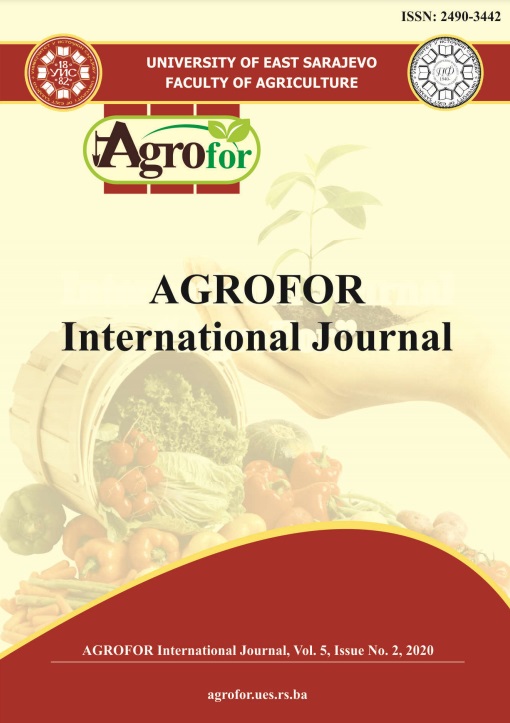SOCIO-ECONOMIC AND BEHAVIORAL ASPECTS OF SLUDGE UTILIZATION IN BULGARIAN FARMS
DOI:
https://doi.org/10.7251/AGRENG2002099SAbstract
The issue of sludge governance received from the wastewater treatment plants
(WWTP) is extremely relevant and indisputably one of those discussed not only in
Bulgaria, but also around the world. The positive role of sludge on the balance of
humus as a result of activating the activity of soil microorganisms has also been
proven. The aim of this article is to analyze the socio-economic and behavioral
aspects of sludge utilization on farms. Extensive in-depth interviews have been
conducted and summarized with farmers using and not using sludge in the Sofia
region, aiming to gather complete information of production, economic,
behavioral, organizational and other nature from farmers using and not using
sludge. The main (economic, technological, behavioral, etc.) factors that influence
the decisions on the use and non-use of sludge in agricultural production are
identified. The results show that the effect of sludge utilization on crop yield is not
instantaneous. It is established that there is a lag in revealing the benefits of this
activity. Interviews conducted with farmers using sludge in their agricultural
activities show twice the yields compared to conventional production. However,
the application of sludge is accompanied by a number of challenges: public
opinion, properties of sludge, as well as many issues related to the technological
introduction of sludge in arable agricultural land.

